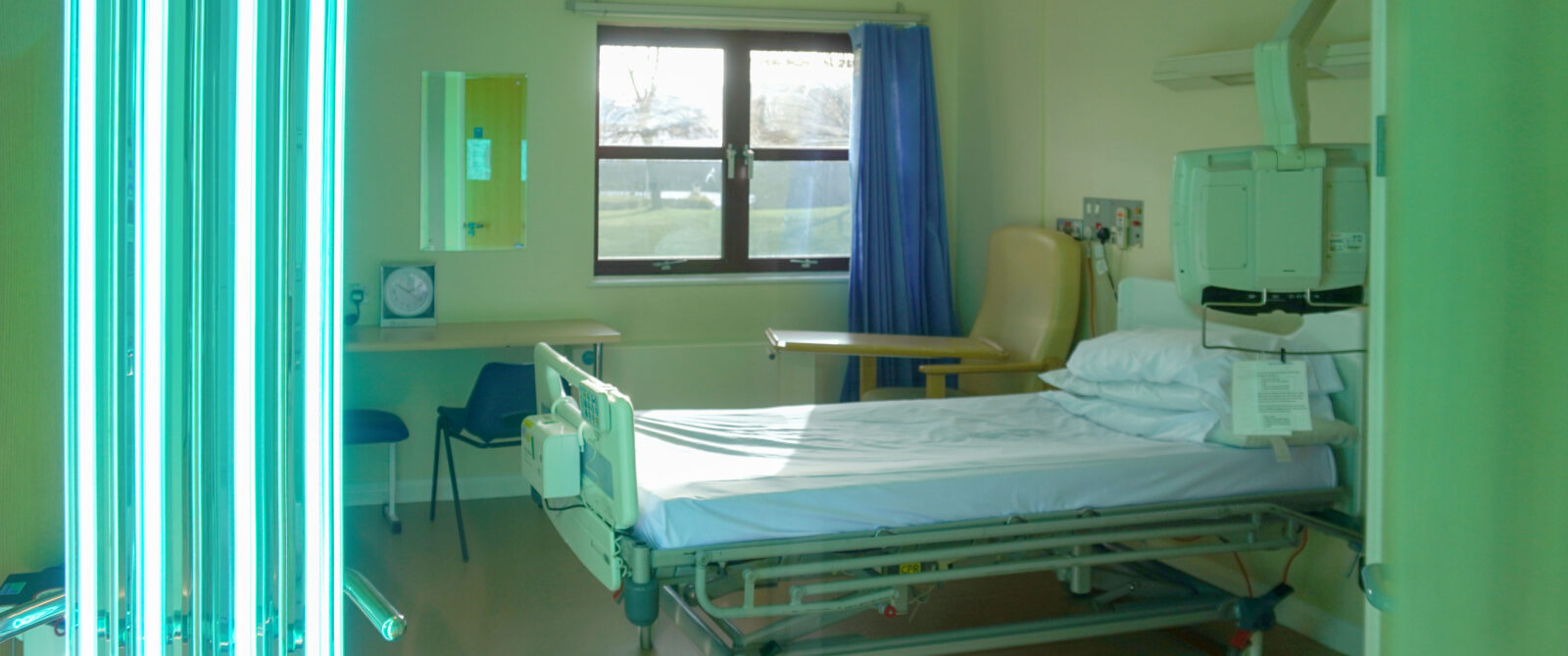

Aim
To investigate the ultraviolet C light (UV-C) attenuation properties of interior and exterior windows at a Trust to verify that it would be safe to operate the Ultra-V decontamination system.

Method
UV-C can be harmful to the skin and eyes. When deciding to integrate automated UV-C decontamination into their infection prevention and control strategy, Royal Bournemouth Hospital had flagged some potential risks around the use of this technology. The Director of Facilities sought reassurances around risks of exposure from UV-C processes to staff and patients. Inivos responded to the query immediately and partnered with a UKAS accredited testing laboratory, to conduct a glass attenuation study on-site to measure UV-C strength throughout the longest process on the Ultra-V.

Result
The UV-C doses recorded during test 1 (exterior window), test 2 (interior window), and test 3 (worst-case) were all 0 mJ/cm², indicating that no UV-C light was able to penetrate through either of the windows, regardless of the Ultra-V’s proximity to a window. During a control test the UV-C sensor measured 263.43mJ/cm² inside the treatment space.




